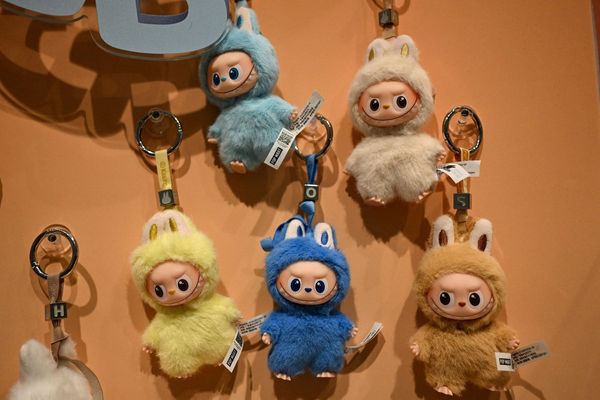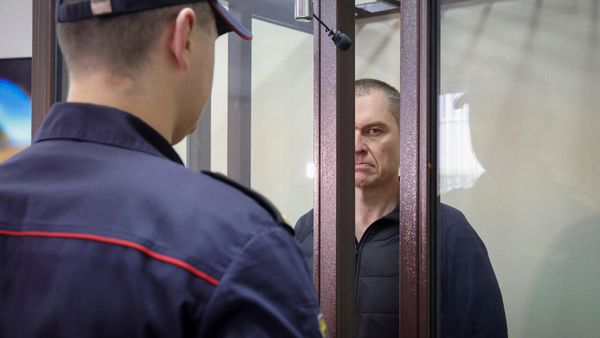Biogen and Eisai won Food and Drug Administration approval on Friday of an at-home injectable version of their Alzheimer's treatment Leqembi.
The news could spur additional sales of Leqembi, which surged 264% sequentially in the June quarter. Traditional Leqembi is an hourlong intravenous infusion given every two weeks. The new version is an under-the-skin shot that takes 15 seconds every week. It can be given at home or in a doctor's office.
Wall Street has been closely watching for this approval, which allows patients to switch to the under-the-skin, or subcutaneous, shot after receiving treatment with the IV formulation for 18 months. With an IV, patients must receive treatment at specialty infusion centers. That can be burdensome for patients living in rural areas or with mobility challenges.
Both options will be important for patients going forward, said Katsuya Haruna, Eisai's executive vice president of U.S. business operations. The company expects a roughly 50/50 split between patients choosing the IV version of Leqembi and those who opt for the subcutaneous shot.
"Leqembi can offer some flexibility options," he told Investor's Business Daily. "That's important for the patient for quality of life. And (subcutaneous Leqembi) may open up infusion capacity again."
Excitement For Subcutaneous Leqembi
Analysts have been closely watching for the FDA's decision, which was due Aug. 31. The under-the-skin shot will reduce treatment burden for some patients, William Blair analyst Myles Minter said in a report following a presentation at the Alzheimer's Association International Conference in July.
"Several questioners (expressed) excitement about potential availability of a Leqembi SC formulation given that it reduces patient burden to visit infusion centers," he said. "In particular, questioners noted it would substantially reduce the patient burden of therapy, which remains high and a key consideration in patient and caregiver decision-making to opt for treatment with Leqembi."
The new shot, called Leqembi Iqlik, uses an autoinjector. This means patients won't need to withdraw medicine from a vial into a syringe, and then depress the syringe for the right period of time to actually inject the drug.
The annual cost before insurance, rebates and discounts kick in is $19,500. In comparison, Leqembi IV costs about $13,316 a year due to its weight-based dosing. Most patients will pay far less, however, due to the current cap of $2,000 a year for out-of-pocket costs under Medicare Part D.
Four-Year Results For Leqembi
The approval follows positive data in July from a four-year study of Leqembi in patients with mild cognitive impairment due to Alzheimer's disease.
Leqembi works by lowering the amount of built-up amyloid protein the brain. This protein injures the synapses and causes the neurons to malfunction, Eisai Chief Medical Officer Lynn Kramer told IBD. As the brain becomes progressively injured, cognitive capabilities decline.
But, after the amyloid plaques are removed, they begin to rebuild. The same pathology reoccurs. This is why Leqembi is a chronic treatment.
The four-year test showed Leqembi slowed cognitive decline by 1.75 points on a scale called the Clinical Dementia Rating — Sum of Boxes. Scores range from 0 to 18 with higher scores indicating a higher level of dementia. Eisai compared patients' results to the natural course of Alzheimer's disease.
Of those patients "50% or more do better at the four-year, 48-month time point that they were doing at the beginning," Kramer said.
Biogen, Eisai Vs. Eli Lilly
The subcutaneous shot, importantly, showed fewer side effects that the intravenous version. With the IV, 26% of patients have mild to moderate reactions. This means they have to wait longer after treatment as health care professionals monitor them for side effects.
Under-the-skin Leqembi "doesn't have systemic infusion reactions because this is deposited under the skin rather than than an injection right into the bloodstream," Kramer said.
RBC Capital Markets analyst Brian Abrahams notes Leqembi already appears to be the safer amyloid-targeting drug. Eli Lilly also sells its drug, Kisunla, for patients with mild Alzheimer's disease. The drug class can lead to swelling in the brain known as amyloid-related imaging abnormalities, or ARIA. But ARIA rates listed on the label for Kisunla are higher than they are for Leqembi.
Notably, Eisai and Biogen are also planning to ask the FDA to approve their under-the-skin shot for the first 18 months of treatment. This would mean future patients could start Leqembi treatment with the at-home shot right off the bat, rather than wading through 18 months of infusions.
The companies have a breakthrough designation and fast track. This could allow them to submit data on a rolling basis and win approval in as little as six months.
Some patients, though, will inevitably opt for the continued IV route, Eisai's Haruna says.
"Some patients prefer the IV treatment because they want to meet their physician or care partner," he said. "But some patients want to switch to the (subcutaneous shot) because people live in a rural area or, simply, they prefer at-home injections."
Biogen Stock Is Under Pressure
The news could help Biogen stock, which is sandwiched between its 50-day and 200-day lines, according to MarketSurge.
Shares also have a poor IBD Digital Relative Strength Rating of 15. This means they track in the bottom fifth of all stocks in terms of 12-month performance.
Eisai shares have climbed this year, but remain below the 10 mark.
Follow Allison Gatlin on X/Twitter at @AGatlin_IBD.







